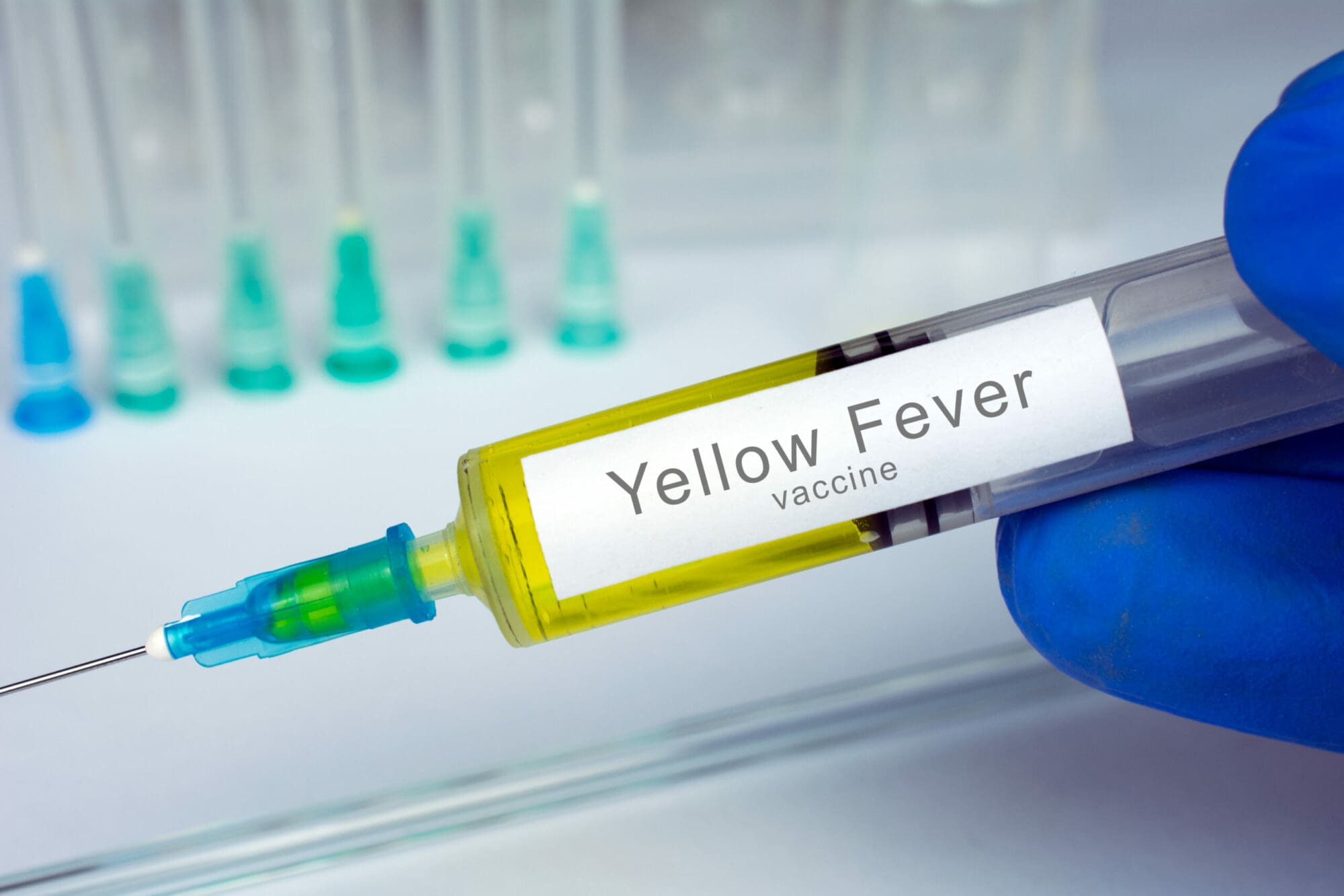What is yellow fever?
Yellow fever is an illness of varying severity caused by an infection with a type of virus known as a flavivirus. It is called ‘yellow fever’ because of the yellow skin colour (jaundice) that develops in people with severe disease.
Yellow fever is spread by types of Aedes and Haemagogus mosquitoes that carry the disease. These types of mosquitoes can breed both in the wild and in domestic habitats. Any region where these types of mosquitoes live can potentially harbour the disease. People (and monkeys) can catch the virus if they are bitten by an infected mosquito.
Where does yellow fever occur?
The disease is seen in urban and rural areas of sub-Saharan Africa and tropical South America, with most cases being reported in Africa. No cases of yellow fever have been reported in Australia.
If you travel to affected regions you are at risk of being infected. Your risk varies depending on several factors, including whether you have been immunised against yellow fever, the area you visit, the time of year that you visit, and your activities while travelling.
Yellow fever symptoms
While some people have few or no symptoms, the infection can cause a flu-like illness or a more severe, life-threatening disease.
Yellow fever usually has an ‘acute’ phase, with a sudden onset of fever, nausea, vomiting, muscle aches and headache. In most people, these acute symptoms tend to improve after 3–4 days.
About 15 per cent of people who suffer from the acute symptoms will become unwell again within 24 hours, entering a ‘toxic’ phase of disease. The fever comes back, as well as abdominal pain and vomiting. Jaundice usually develops quickly because of liver failure, and the kidneys can start to fail too. Bleeding from the mouth, eyes, nose and stomach (causing blood to appear in vomit and faeces) can also occur. About 50 per cent of unvaccinated travellers who enter this toxic phase of disease will die within 10–14 days. The fatality rate for people who live in areas where the disease is common is somewhat lower. Those who recover will usually not have any significant long-lasting effects.
Treatment
Unfortunately, there is no specific treatment for yellow fever. Treatment is based on supportive measures, such as fluids for dehydration, paracetamol for fever, and dialysis for renal failure. If you have severe disease you will need to be treated in hospital.
Preventing yellow fever with vaccination
There is a vaccine that is almost 100 per cent effective against yellow fever. It takes about 10 to 14 days from the time of receiving the vaccine before you are protected. The vaccine loses its strength after about 10 years, so you may need a booster injection if you are planning to return to a region where yellow fever is prevalent.
Vaccination is relatively safe, and is recommended for most people planning to travel to high-risk areas. In fact, you will require proof that you have been vaccinated before you are allowed to enter and leave some countries. The vaccine is generally only available at travel clinics and some doctors’ surgeries. To obtain a valid certificate make sure you are vaccinated at an approved yellow fever vaccination centre. Check with your travel agent, doctor or travel health clinic whether you should be vaccinated before travelling overseas.
Vaccination may not be appropriate for some people, including pregnant women, children younger than 9 months of age, people who have compromised immune systems and people who are allergic to eggs. People who are not vaccinated for medical reasons should obtain a written medical waiver before travelling to yellow fever-affected countries.
What else can I do to protect myself against infection?
It’s also important to take measures to prevent being bitten by mosquitoes while you are visiting affected areas. Make sure you wear loose-fitting, long-sleeved shirts and long pants, and always remember to apply mosquito repellent containing DEET or picaridin. Repellent that contains permethrin should be applied to your clothing. Try to stay in accommodation that has air-conditioning or insect screens. If you are visiting a rural area, you should bring a mosquito bed net, aerosol insecticides and mosquito coils.
Depending on where you are travelling, protecting yourself against mosquito bites can also help prevent you being infected with other diseases that are spread by mosquitoes, such as malaria and dengue fever.





